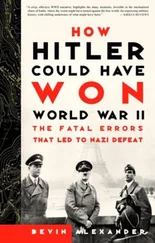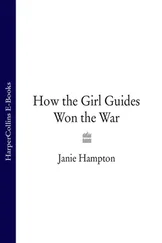An obscure fringe political movement, founded on 5 January 1919 with a membership of twenty-four and calling itself the German Workers’ Party, had in little over a decade become the largest party in the Reichstag. Known by then formally as the National Socialist German Workers’ Party – the NSDAP or Nazi Party – its ideology was anti-Semitic and racist and its methods were violent. Its adherents were led by an unemployed Austrian veteran of the First World War who had won an Iron Cross (1st and 2nd Class) for gallantry but then failed in his attempt to earn a living as an artist. Mesmerized by Adolf Hitler’s pseudo-Darwinist theory that the Germans were a racially pure people who would in due course master Europe by subjugating or extirpating any of the non-Aryan races that stood in the path of this apocalyptic vision, his followers were as fanatical as he in their devotion to his cause. Before long, seduced by Hitler’s gift for messianic oratory, huge crowds attended Nazi Party rallies, listening to him in rapt attention before raising their outstretched right arms in tribute as they chanted ‘ Sieg Heil! ’ while he incited them towards a perdition far more terrible than anything imposed on them by the victors at Versailles.
No one who had waded through the leaden repetitions of Mein Kampf would have been surprised by their leader’s boundless hatred of ‘the Jew’, whom he described repeatedly as, inter alia, ‘a parasite’, ‘a pernicious bacillus’ and a ‘mortal enemy’ that had to be expunged. 22 In a grotesque perversion of history, Hitler asserted that it was this ‘subhuman’ species that had snatched victory from Germany in 1918 and handed it to the Allies. Subsequently, their ‘corrupt and degenerate’ collusion with their Marxist colleagues in the Weimar government had produced the Versailles treaty, which was an ‘instrument of boundless extortion and abject humiliation’. 23 Hitler’s abomination of ‘international Jewry’ was entwined with a loathing of Bolshevism and a limitless appetite for Lebensraum – living-space – without which the German ‘master race’ would be unable to re-establish its proper destiny.
In Mein Kampf these themes formed a common though inchoate thread. It was an all-or-nothing imperative:
The right to possess soil can become a duty if without extension of its soil a great nation seems doomed to destruction … Germany will either be a world power or there will be no Germany … If we speak of soil in Europe today, we can have in mind only Russia and her vassal border states. Here Fate itself seems desirous of giving us a sign. By handing Russia to Bolshevism, it robbed the Russian nation of that intelligentsia which previously brought about and guaranteed its existence as a state … [That] was not the result of the political abilities of the Slavs in Russia but only a wonderful example of the state-forming efficacy of the German element in an inferior race … For centuries Russia drew nourishment from this German nucleus … Today it can be regarded as almost totally exterminated and extinguished. It has been replaced by the Jew … The giant empire in the east is ripe for collapse. And the end of Jewish rule in Russia will also be the end of Russia as a state … 24
Hitler had an unrivalled gift for exploiting the festering grievances and prejudices of a defeated people and to offer them salvation with a messianic vision of the nation rising from the ashes to become a great world power once again. His vast audiences were roused to a pitch of almost orgasmic hysteria. After little more than a decade of street thuggery and political manipulation, the National Socialists had commandeered the nation, through first the soap box and then the ballot box.
Initially, however, the Nazis appeared to have no chance of becoming a mass movement. On 8 November 1923 they made their first move by initiating a violent coup d’état attempt against the local state commissioner, who was speaking at a Munich bierkeller. On the following day, in the hope of inciting the local garrison of the Reichswehr to join them in toppling the Weimar government, they staged a march in the city aimed at seizing key state installations. In the ensuing mayhem, the Bavarian police shot and killed fifteen marchers as well as an innocent bystander. Along with Rudolf Hess, one of his co-conspirators responsible for orchestrating the shambolic so-called ‘Beer Hall Putsch’, Hitler was arrested, charged and found guilty of treason. But instead of imposing a long incarceration in a common jail, the judge – who was a Nazi sympathizer – sentenced him to just five years of Festungshaft (house arrest) in a fortress, where he lived in relative comfort until he was released nine months later. As he was not required to exert himself in physical labour, he had plenty of time in which to complete the turgid but terrifying manuscript that was published as Mein Kampf .
In the December 1924 election the Nazis could garner only 3 per cent of the vote, which gave them a mere thirty-two seats in the 472-seat Reichstag. But within six years, as the Great Depression began to ravage the country, they achieved a six-fold increase in their share of the vote, securing 18 per cent in the 1930 elections. They were now a force to reckon with. Tensions were high. Running battles in the streets between the Nazi Party’s Storm Troopers (the SA, or Brownshirts, as they were known), and their social-democratic SPD and Communist Party rivals gave a dangerous edge to the worsening political crisis. In July 1932, the Nazis won 37 per cent of the vote, which made them the largest party in the Reichstag with 230 seats. The SPD (the former governing party) and the Communist Party trailed far behind with, respectively, a 21 per cent and a 14 per cent share. The Nazis had attracted more votes – 13,745,680 – than the other two parties put together. However, as no other party was willing to work with them, they were as yet unable to form a governing majority. The result was political gridlock.
Four months later, in November, in an attempt to break out of this impasse, President Paul von Hindenburg – who had been in office since 1925 – decided to dissolve the Reichstag and call another election. On this occasion, popular support for the Nazis fell by 4 per cent but they once again emerged as the largest party with the highest share of the popular vote. As the smaller parties were still unwilling to form a bloc large enough to keep Hitler out of power, the Reichstag was once again paralysed. Hindenburg, who was revered as the wartime commander-in-chief of the Kaiser’s army and who had been, since the autumn of 1916, the de facto head of government, was at a loss. Although he had become a father figure to the nation, he was tired and enfeebled by age, and certainly no match for Hitler. On 30 January, seeing no other way to break the political deadlock, Hindenburg summoned the Nazi leader to confer on him the title Chancellor of Germany. Hitler was sworn in on 30 January 1933.
It had been a remarkable coup de théâtre. With a rare gift for populist rhetoric, Hitler told his listeners what they wanted to hear: that the most powerful state in Europe had been robbed of its rightful place in the firmament, expelled from its own lands, denied the right to bear arms and humiliated by financial reparations, which – though they had ceased in 1932 – he blamed for their impoverishment.
When he added into that toxic mix that the principal agency of their current misery was a conspiracy of Jewish plutocrats, a great many otherwise rational citizens did not pause to question the proposition, let alone to ask whether the ‘plutocrats’ were really to blame and, if so, what was the difference between a Jewish and a gentile plutocrat. Nor did they choose to recall that, while some Jews were indeed bankers, most were shopkeepers, traders and artisans earning modest incomes in what would today be called ‘the service sector’. In a Europe which had long been disfigured by anti-Semitism, Hitler merely confirmed their prejudices and gave them focus. In the ferment of that time, little by little, distortion by distortion, lie by lie, he acquired for himself a high enough share of the popular vote to give him the authority to incinerate the very democratic institutions that had brought him to the highest office in the land.
Читать дальше
![Джонатан Димблби Barbarossa: How Hitler Lost the War [calibre] обложка книги](/books/385421/dzhonatan-dimblbi-barbarossa-how-hitler-lost-the-w-cover.webp)



![Traudl Junge - Hitler's Last Secretary - A Firsthand Account of Life with Hitler [aka Until the Final Hour]](/books/416681/traudl-junge-hitler-s-last-secretary-a-firsthand-thumb.webp)







